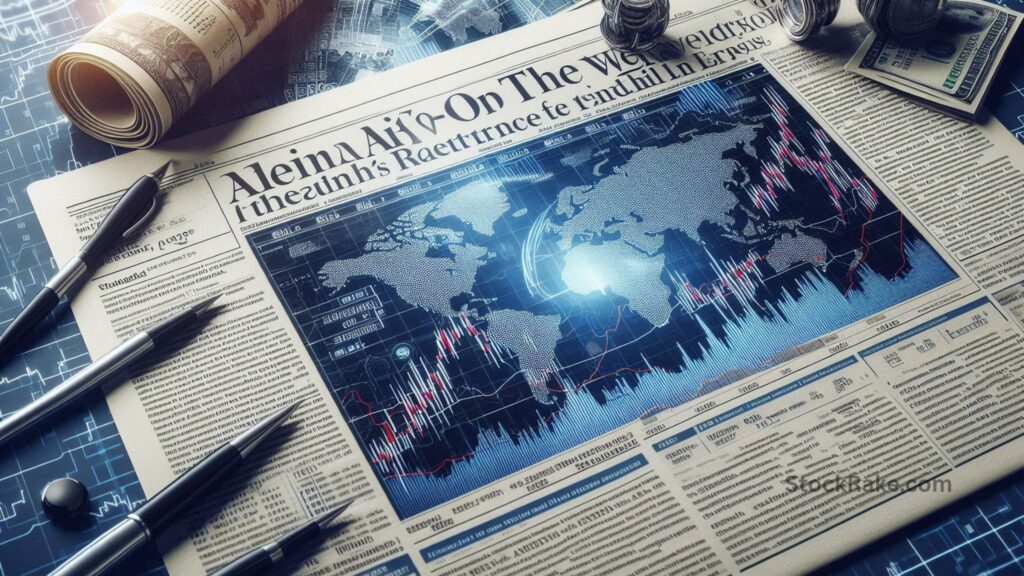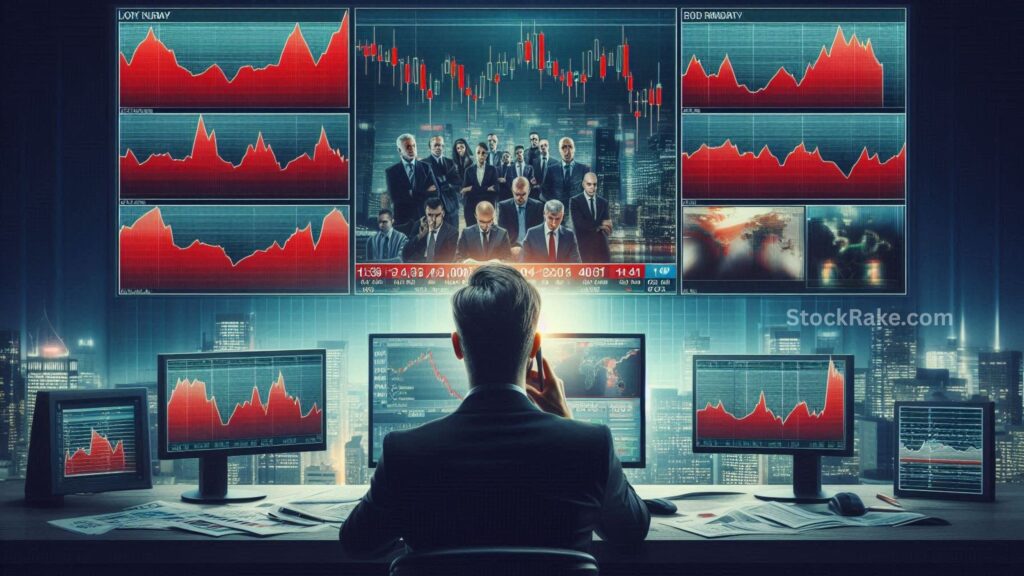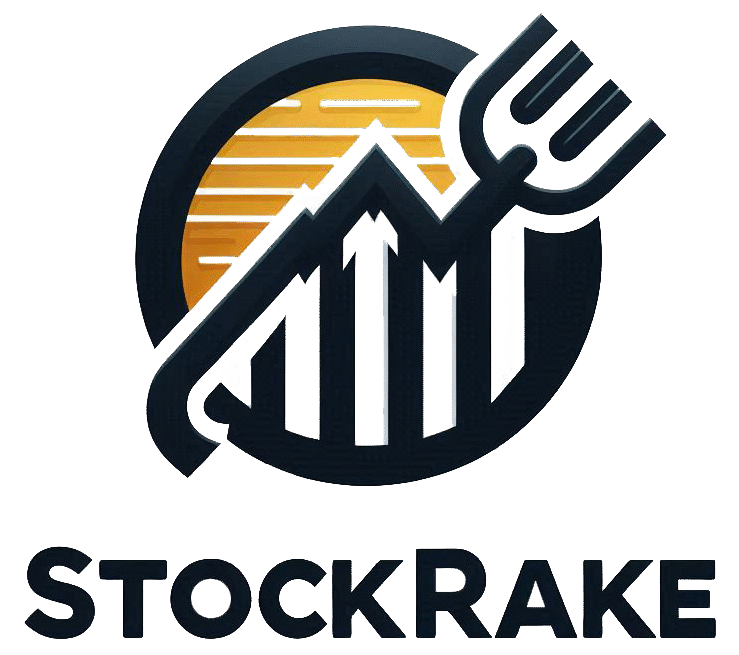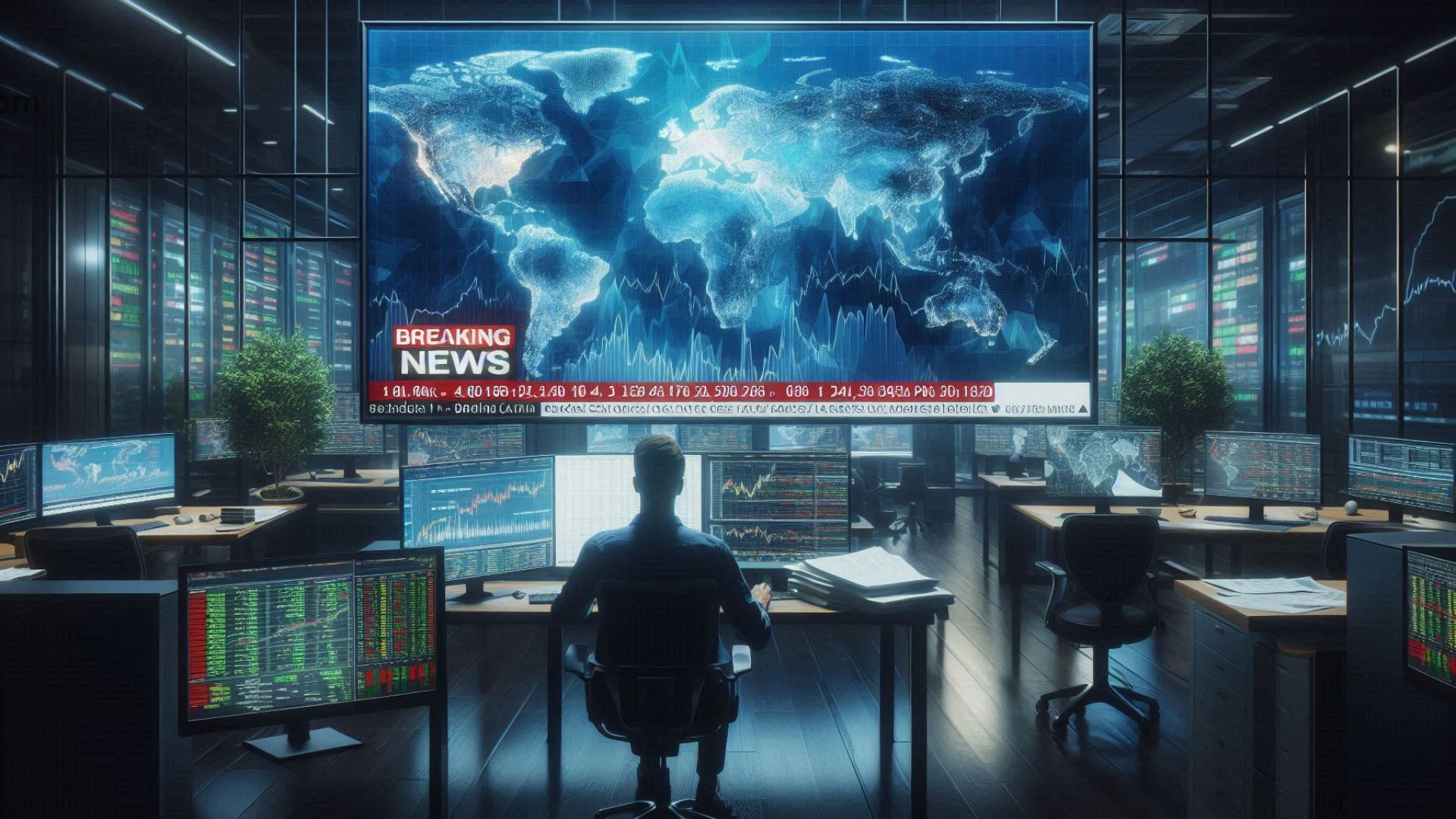The U.S. stock market is the biggest in the world—and because of that, it often feels the impact of global events first.
Whether it’s a trade war, military conflict, or economic policy shift, news from around the world can shake Wall Street in a matter of hours.
But the market doesn’t just react to the event itself—it also responds to how investors feel about what might happen next.
In this article, we’ll break down what a “market event” really means, how global incidents like the U.S.-China trade war or the Russia-Ukraine conflict have affected U.S. stocks, and how you can stay one step ahead when similar events unfold.
What Does “Event” Mean in the Stock Market?
In simple terms, a market event is any news or incident—economic, political, corporate, or geopolitical—that has the power to influence investor behavior.

These events can be either positive or negative, and they can happen in the U.S. or anywhere else in the world. Some common examples include:
- Quarterly earnings reports
- Economic data releases (like GDP or inflation numbers)
- New government policies
- Natural disasters
- Political unrest or war
Such events usually bring volatility—big ups and downs—in the stock market. The more uncertainty around the event, the more dramatic the reaction.
How Global Events Influence the U.S. Market
Because the U.S. is deeply connected to global trade, even a small disruption overseas can cause a ripple effect here.
Take this example: On April 2, 2025 (Liberation Day), news of new tariffs caused a sell-off in global stock markets. The S&P 500 dropped by 9% that week, and the tech-focused Nasdaq 100 slid nearly 10%.
In 2022, Russia’s invasion of Ukraine sent oil prices soaring past $120 a barrel. That spike in oil prices pushed inflation in the U.S. to 9% by June, and the S&P 500 ended the year down almost 18%.
These examples show how much U.S. stocks are influenced by what’s happening globally—not just at home.

Major Global Events That Have Shaped U.S. Markets
Let’s look at a few historic global events and how they shook the U.S. market:
COVID-19 Pandemic (2020):
The virus brought the world to a halt—and caused the fastest stock market crash ever. The S&P 500 lost 34% in just over a month. But thanks to government stimulus, markets bounced back sharply. The S&P rose 18.4% in 2020 and nearly 29% in 2021.
Brexit (2016):
When Britain voted to leave the EU, global markets panicked. The Dow Jones fell the most in five years. The S&P 500 and Nasdaq dropped 3.6% and 4.1%, respectively. Markets calmed down later, but the shock had a lasting effect.
Lehman Brothers Collapse (2008):
This event triggered the worst financial crisis since the Great Depression. The S&P 500 fell nearly 57% from its 2007 peak to its 2009 low. It also led to major changes in how banks operate.
9/11 Terror Attacks (2001):
After the attacks, markets shut down for a week. When they reopened, the Dow dropped 7.1% in a single day. Airline and insurance stocks were hit the hardest, and the recovery took months.
Also Read: What Are the Best Stock Picks from Reddit’s WallStreetBets?
Why Do Markets Fall During Global Crises?

It’s not just panic or bad headlines that cause sell-offs. The real reason is that these events hurt company earnings—and that’s what stock prices are based on.
Lower Earnings = Lower Stock Prices
Investors buy stocks based on what they think a company will earn in the future. But when a crisis hits—like a war or pandemic—those earnings expectations often fall. If businesses earn less, their stock prices usually drop too.
Example:
In 2022, Adobe lowered its earnings outlook because it stopped doing business in Russia and Belarus. As a result, its stock fell 10% in one day.
Profit Margins Shrink During Crises
When global events disrupt supply chains or push up energy costs, company profits take a hit. For instance, during the Russia-Ukraine war, rising inflation led Walmart to cut its profit forecast. Its stock dropped 9% in a day.
Uncertainty Freezes Spending
When people and companies feel unsure about the future, they hold onto their money. That means fewer investments, less consumer spending, and slower economic growth—all of which weigh on the stock market.
Example:
A recent tariff announcement led to a big drop in U.S. stocks. Goldman Sachs predicted that S&P 500 earnings could fall 1–2% for every 5% increase in tariff rates. No surprise the market reacted quickly.
Key Global Triggers to Watch
Smart investors don’t just watch earnings—they also keep an eye on these big-picture signals:
- Geopolitical Tensions: Wars or threats of war can drive fear and spike oil prices.
- Central Bank Policies: Decisions from the Fed, Bank of Japan, or European Central Bank can rattle markets.
- Inflation (CPI): A rising Consumer Price Index suggests higher prices and may trigger rate hikes.
- Oil Prices: A $10 jump in oil can push U.S. inflation up by 0.2% and slow growth by 0.1%.
- Health Crises: A new virus can freeze economies and sink investor confidence.
- Currency Fluctuations: A strong U.S. dollar can hurt exporters and trade balances. Investors watch the Dollar Index (DXY) for signs.

Also Read: What Does the Latest Jobs Report Mean for Investors?
3 Things That Make Global Events Hit Harder

- The Volatility Index (VIX):
Often called the “fear gauge,” the VIX shows how nervous investors are. A spike in VIX usually means panic is setting in. During the early days of COVID-19, the VIX hit 82.69—the highest since the 2008 crash. - Media Hype:
24/7 news coverage and viral social media trends can fuel emotional decisions. Remember the GameStop surge in 2021? A Reddit movement pushed the stock up 1700% in weeks, before crashing back down. - Fast Global Capital Flows:
Institutional investors move billions with just a few clicks. That speed can turn local news into a global reaction in minutes.

